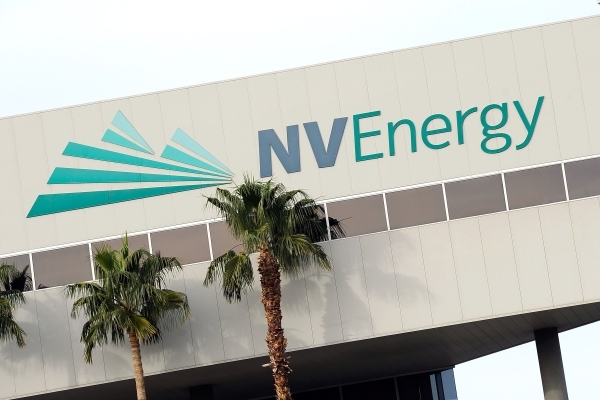Initiative proposes breaking up NV Energy monopoly

CARSON CITY — A proposed constitutional amendment to open up Nevada’s electricity markets and give consumers “meaningful choices” of utility providers was filed Wednesday with the secretary of state’s office.
The measure filed by a group called Nevadans for Affordable, Clean Energy Choices seeks to abolish NV Energy’s monopoly as Nevada’s electricity utility and allow consumer to the option to choose how they get their power by 2023.
Paul Caudill, president and CEO of NV Energy, wasn’t surprised by the initiative, given the rapidly changing energy markets, from natural gas and solar to wholesale electric markets.
“I’m not surprised at all, and I don’t think anyone should be surprised,” he said.
Caudill had no specific comment on the initiative itself.
“It’s a very complex issue and we’re in no position right now to take a position,” he said.
But he added the company is open to discussions with policymakers and stakeholders going forward.
“We do understand the market very, very well,” he said.
The initiative is the latest energy salvo in Nevada, where the rooftop-solar industry has been battling with the Nevada Public Utilities Commission and NV Energy over new net metering rules, regulations and reimbursements.
The initiative states that any business, resident or entity “has the right to choose the provider of its electric utility service,” whether that be from a competitive retail electric market or by producing electricity for themselves or with others.
The effort also comes as three large casino companies want to leave Nevada Power to find alternative electricity sources on the wholesale market. State regulators recently imposed combined exit fees totaling $126 million for Las Vegas Sands Corp., MGM Resorts International and Wynn Resorts Ltd. to leave.
NV Energy operates as Nevada Power in Southern Nevada and Sierra Pacific Power in the north. Statewide, it has about 1.3 million customers.
A separate initiative was filed last week by a rooftop solar coalition that seeks to ask voters in Nevada to continue Nevada’s original, more favorable net metering program for all homeowners who want to install solar panels. It would also eliminate a cap on net metering systems.
New net metering rates took effect Jan. 1 for all rooftop-solar customers with a higher monthly fixed charge and a lower rate for excess electricity generated by their systems. The rationale is that rooftop solar customers receive a subsidy from nonsolar customers. The new rates are intended to correct the inequity, but some question whether there is a subsidy at all.
After vocal criticism from solar businesses and thousands of customers, NV Energy proposed grandfathering in existing solar customers for up to 20 years. The PUC is set to consider that proposal next week.
Backers of both initiatives need to collect about 55,000 signatures by June 21 to qualify for the November ballot.
Because the energy choice initiative proposes a constitutional amendment, it would have to be approved by voters twice, in 2016 and 2018.
The Review-Journal is owned by a limited liability company controlled by the Adelson family, majority owners of Las Vegas Sands.












